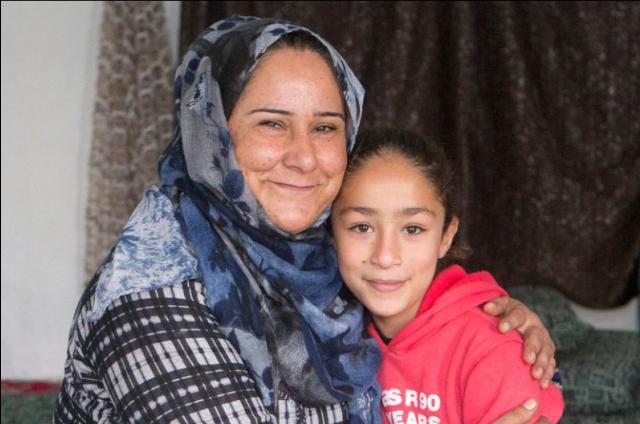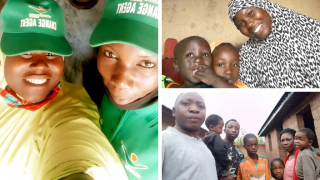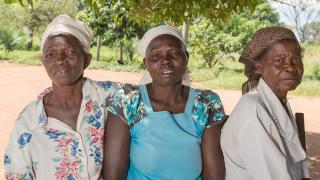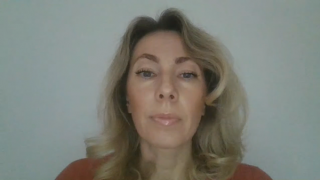Speaking up Against Weaponising the Shame of Sexual Violence
MEET BRAVE WOMEN WHO ARE CHALLENGING NORMS AND MAKING THEIR VOICES HEARD
Content warning: the following blog contains graphic mentions of rape and sexual violence. Please stop reading here if you are likely to find these triggering.
All women are vulnerable to violence – with one in three experiencing some form in their lifetime (source: WHO). But those in conflict-affected regions are much more exposed to it. Living in conflict zones, experiencing war and suffering displacement all increase the risk.
The women we serve are all survivors of war or conflict – but far too many have survived violence against women as well. Despite the trauma, they continue to push for change. They rebuild their lives while working towards a brighter future for their children, and many become activists to drive wider, long-lasting change for their communities.
In this blog we share the stories of five women, Nabintu from the Democratic Republic of the Congo, Mila from Ukraine and Grace, Hadiza and Joyce from Nigeria.
Nabintu
Everything changed for Nabintu when Interahamwe rebels invaded her village in the Democratic Republic of the Congo. Her once peaceful life, which she shared with her husband and three children in a comfortable home, was viciously disrupted after she was raped in front of her family, kidnapped, and sold as a sex slave to the rebel group’s commander. When she was able to escape, pregnant and ill, and return to her village, Nabintu was shamed and rejected by her husband and community.
When I arrived home, my husband said to me, ‘You are already the wife of an Interahamwe. I can no longer live with you. And you may be HIV positive.’ The man I loved kicked me out of our home.
Because of her label as the wife of an Interahamwe, Nabintu struggled to find a support system that would accept her. After learning of Women for Women International, Nabintu enrolled in the Stronger Women, Stronger Nations programme. In the programme she found support and new friends. And, in addition to receiving training which enabled her to earn money and support her children, she learned to recognise her own value despite being ostracised from the community she once lived in happily.
The first topic, which was the most interesting for me, was that a woman should value herself. The trainer gave me a piece of advice that helped me a lot. She asked me not to neglect myself, but to consider myself a person among others.
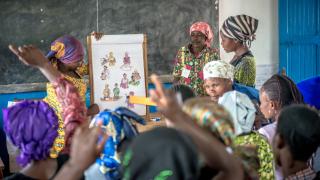
Every day, Women for Women International's programmes and resources help women like Nabintu, who was shamed for her trauma, to realise their power and understand their value, providing the knowledge to women survivors of sexual violence and their communities that can transform perspectives influenced by stigma.
According to the United Nations, sexual violence during war and conflict is a tactic used to destroy and terrorise communities. In communities with traditional and cultural views where rape is seen as an attack against a woman’s “honour”, survivors are often left reeling from both the trauma of their experience and being viewed as “unclean” in the aftermath. In cases of conflict-related sexual violence, women can also face accusations of a willingness.
Mila
This was the experience of Mila, who was raped by a Russian soldier around the age of her 19-year-old son after her Ukrainian village was captured by soldiers during the ongoing war. She survived the brutal attack to see her village liberated from the soldiers, but her ordeal was not over. Rumors spread by Mila’s neighbours accused her of willingly having sex with her attacker, and she became isolated from her community. When she approached the local authorities with evidence of the rape, they asked why she didn’t resist.
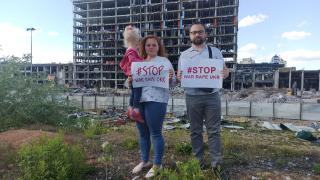
We never find any women who said ‘no’ to the Russian soldiers, that’s because they are all dead.
Despite the gossip and accusations leveled against her, Mila has publicly spoken out and encouraged other women who have been attacked by the invading soldiers to share their stories.
Grace and Hadiza
Like Mila, women across war-affected regions are using their power to speak out against sexual violence. In northern Nigeria, for example, Change Agents Grace and Hadiza have partnered together to create change for the women in their communities through education about rape and violence. In this mission, they have challenged ideas rooted in patriarchal traditions and culture, even speaking out against a powerful community leader.
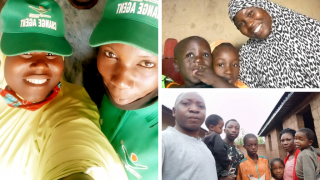
"There is a Chief in our community who attributed rape cases to girls dressing indecently, and we had to challenge him on that,” says Hadiza. “We went to the Village Head to complain about how his statements condemned victims and fueled support for perpetrators. The Village Head stood strongly in our support and decreed that rape would be prosecuted under the law."
She and Grace, who connected through the Change Agents programme, are also using their training to advocate for survivors of violence - following up with the police on cases that might be dismissed and using communication strategies they were taught.
“We encourage women to speak up when they are physically abused by their partners,” says Hadiza.
We tell women that violent behaviour can never be excused or justified. We let women know how to report rape cases to the authorities, and we help them get medical and legal support.
Joyce
Joyce, another participant of the Stronger Women, Stronger Nations programme in Nigeria, also learned of the importance of reporting intimate partner violence and making her voice heard.
“You have to speak out and you have to make people know that this is something that you’re going through,” Joyce says. “From there, you get help from people. But if you keep quiet, there’s no help. People won’t know what you’re going through, so you have to learn to speak out so that help will come to you.”
Many women experiencing domestic violence keep quiet, she says, thinking they are protecting their family’s interests by keeping the secret of abuse. As a result, she says many have died.
I have learned to speak out and learned to know how to tackle issues especially when I have a neighbour or anyone who is going through this challenge, I know what to tell her.
Read more
Grace and Hadiza are two brave women who are challenging norms and making their voices heard as they advocate for change in their communities in northern Nigeria. Using radio, they are helping women to speak up against gender-based violence and empowering them to get the medical and legal support . Graduates from the Stronger Women, Stronger Nations Programme, these two women are an example of what can be achieved when women believe in the #PowerToChange accepted norms.
Worldwide, 1 in 3 women worldwide has experienced physical and/or sexual violence in their lifetime. This number hasn’t changed in 10 years.
It has been 100 days since Russia invaded Ukraine. With each day that passes, more and more women are at risk of sexual violence. Olena Behnke fled from Ukraine two months ago. She now works for Women for Women International, supporting other women refugees. Read her blog as the war continues.

